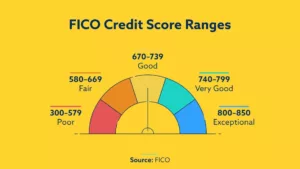Hello! Love all the information!
I have a medical debt that is in collections, however, it is about 4 years past the statute of limitations in my state. What can I do about this debt? Are they still allowed to collect?
Unpaid debt can be pursued as long as it remains unpaid. There is nothing illegal about a debt collector attempting to collect a debt that is past the statute of limitations.
What makes the statute of limitations important is that you can no longer be sued as a remedy to collect the debt – which essentially makes the debt uncollectible.
The debt can be sold from one collection agency to another but they have no leverage to make you pay the debt.
Debt beyond the credit reporting time limit and statute of limitations can be ignored
If the debt is also beyond the credit reporting exclusion period, you can choose to ignore any debt collection efforts. To determine if the debt is past the credit reporting time period 7 years plus 180 days must pass since the date of first delinquency on the debt. Once 7.5 years has passed, the debt can no longer be included in any credit report. You can simply choose to ignore their collection efforts.
To prevent any further communications from the debt collector, simply send them a cease communication letter under FDCPA 805(c), and it will thereafter be a violation of the FDCPA for them to initiate any communications with you.
Settle for less with a pay for delete agreement for medical debt
Now if the debt is reporting on your credit reports, a pay for delete is one way to get the debt removed. Offer as little as possible to see if you can get rid of the debt. Just make sure you get any agreement in writing that whatever amount they agree to accept that the debt is considered paid in full and it will be deleted from your credit reports immediately.
Debt validation request for medical debt
Take heed, this option runs the risk of updating the “date of last activity” or “date last reported” on your credit reports. When a creditor or collection agency updates the last date reported it can have an adverse effect on your credit scores. It essentially makes the negative accounts look more recent. And, the more recent a negative account, the more negative impact to your credit scores.
Debt validation letter. The purpose for requesting debt validation is to create leverage for the debt collector to remove the debt from your credit reports. In the debt validation letter you want to request the following.
- Medical Bill – You want the collection agency to send you a copy of a medical bill they claim belongs to you.
- Original Agreement – The collection agency typically has no proof they have an agreement with the original creditor to collect the medical debt.
- Signed Contract – The collection agency probably cannot produce a signed contract where you agreed to pay the medical debt charges.
Any proof or lack thereof provided by the collection agency may corner them into removing the debt from your credit reports. For example, they more than likely cannot produce an original contract with your signature where you agreed to pay the debt. This is leverage to have the debt removed from your credit reports.
Better leverage would be if the collection agency produces a medical bill with your personal medical information. This action would put them in violation of HIPAA (Health Insurance Portability and Accountability Act of 1996). Unless you specifically authorize the collection agency to access your protected health information, privacy rules prohibit disclosure. That means if a doctor or hospital shared anything on the bill that alludes to your condition or what you may have been treated for, they may have just broken privacy rules. This is leverage to have the debt removed from your credit reports.
If you get a medical bill that exposes any medical procedure or other personal information that can be used as leverage, you would then make a complaint with the Consumer Financial Protection Bureau (CFPB) requesting the account(s) be deleted from your credit reports based on HIPPAA violations.
You can also make those same complaints if you do not receive any evidence you owe the debt after requesting debt validation.

















